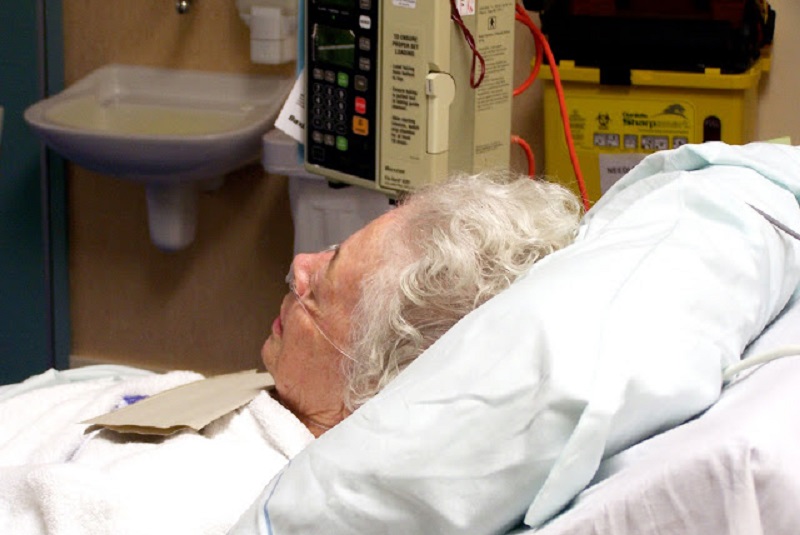The trial of the doctor who lethally injected (euthanasia) an incompetent woman without effective consent is happening this week in the Hague Netherlands.
The case concerns the euthanasia of a woman with dementia who resisted. The doctor sedated the woman by secretly putting drugs in her coffee. The woman continued to resist so the doctor required the family to hold her down as the doctor lethally injected her.
In January 2017, a Netherlands Regional Euthanasia Review Committee decided that the doctor had contravened the rule of law but that she had done it in “good faith.”
*Dutch doctor reprimanded for euthanasia without consent of woman with dementia.
The Associated Press (AP) reported:
The court case centers on a 74-year-old woman who was given fatal doses of drugs three years ago despite some indications she might have changed her mind…
She is charged with breaching the euthanasia law and, if the judge rules the request of the patient was insufficient, that charge could in theory become murder.
But the prosecution is not seeking any penal sentence against the doctor and does not question her good faith. Instead, the prosecution centers its case on setting out a better legal framework for the future.
“We think the doctor has not acted carefully enough and thus passed a threshold. But at the same time, we also say that this threshold is not very clear,” said public prosecution spokeswoman Marilyn Fikenscher…
It is common for the Netherlands court to hear a case, not with the intention of punishment but rather to establish a precedent to determine what the court considers acceptable or unacceptable, based on the application of the law.
Click Like if you are pro-life to like the LifeNews Facebook page!
The doctor, who has now retired, argued that since the woman was mentally incompetent that she could not invalidate her previous request. AP reported:
The doctor testified that because the patient was not mentally competent, nothing the woman said around the time of her death was enough to invalidate the written statement. She said the patient could no longer fathom the meaning of such concepts as euthanasia and dementia.
Normally this statement by the doctor would be considered a reason to oppose euthanasia for incompetent people, but in this case the doctor considers it a defense.
The Dutchnews.nl stated that the woman having dementia did not change the requirement that a doctor must verify the request for euthanasia. The Dutchnews.nl reported:
Nienke Nieuwenhuizen, chairwoman of the association of geriatric specialists, said that when euthanasia was legalised in 2002 no one had thought of dementia. ‘We could do with more clarity but the question is whether this case is going to bring it.
So lets, examine the facts of this euthanasia death:
- The woman had dementia and was incapable of asking for euthanasia,
- The declaration in her will was not clear,
- She stated several times that she did not want to die,
- She was not informed that a sedative was put in her coffee,
- Her family was required to hold her down so the doctor could lethally inject her.
- The Regional Review Committee found that the doctor contravened the law but that it was done in “good faith.”
- The court is not hearing the case to punish the doctor but to establish a precedent.
The outcome of this case may influence Canadian euthanasia policies. The Canadian government is debating the extension of euthanasia to incompetent people who previously requested euthanasia while competent.
LifeNews.com Note: Alex Schadenberg is the executive director of the Euthanasia Prevention Coalition and you can read his blog here.

Please click here to read the full story.
Author: Alex Schadenberg




